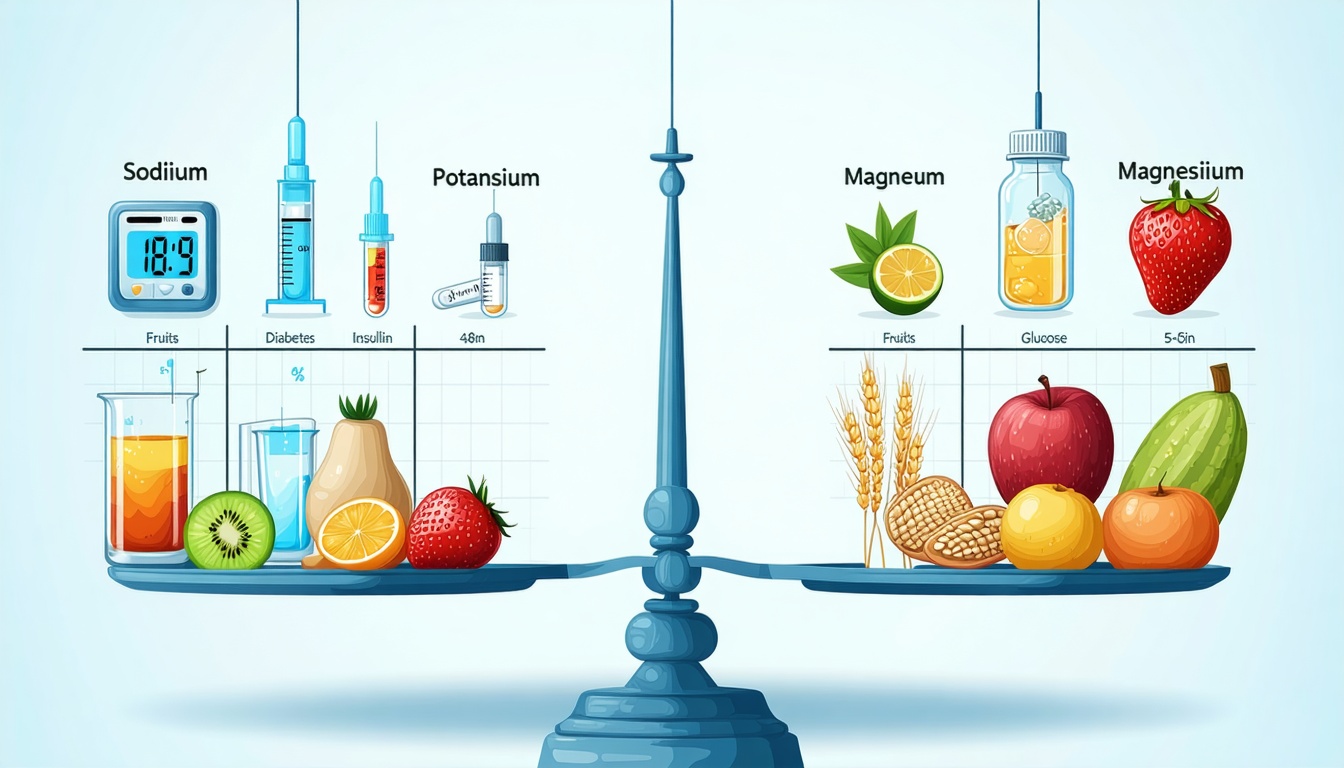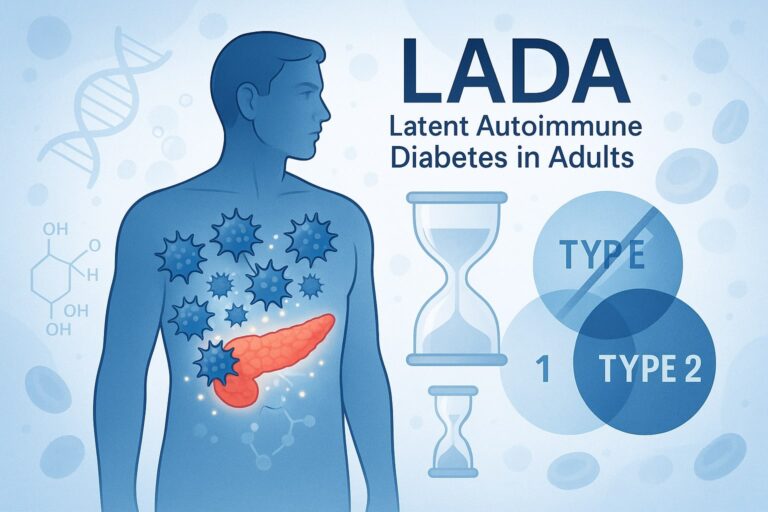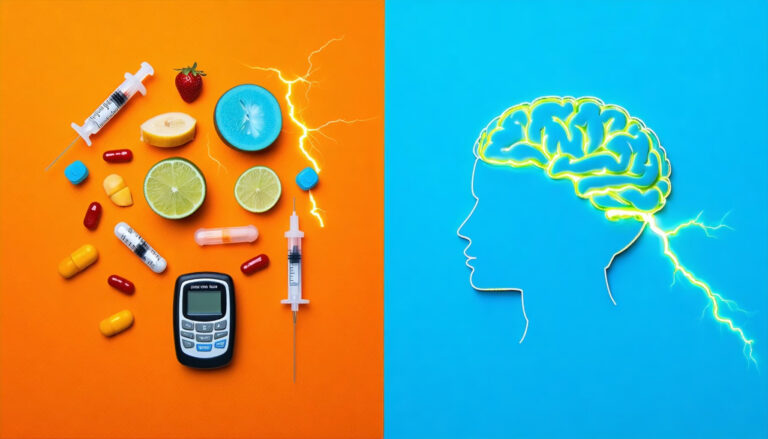Why We Should Care About Diabetes and Electrolyte Balance
Why are diabetes and electrolyte balance are vital for us? Learn to manage imbalances and optimize health.
Importance of Electrolytes in Diabetes
Electrolytes keep our bodies running smoothly, and this is even more important when diabetes is in play. Over 38 million Americans deal with diabetes, mostly type 2. Key electrolytes like sodium, potassium, and magnesium keep fluids in check, ensure our hearts beat just right, help muscles and nerves work, and aid digestion.
Sodium, the big player, is crucial for cells to soak up nutrients and keep water levels balanced. Potassium manages heartbeats and muscles, while magnesium is involved in 300+ processes, including managing blood sugar and making proteins. Keeping these in balance is a big deal for us.
Impact of Diabetes on Electrolyte Balance
Living with diabetes can mess with our electrolyte balance. Take uncontrolled diabetes—spikes in blood sugar can cause more trips to the bathroom, flushing out sodium, potassium, and magnesium. This, called osmotic diuresis, can lead to dehydration, making us thirstier and more tired.
Low magnesium, or hypomagnesemia, is often spotted in folks with diabetes, especially older folks. It happens due to excessive urination, not eating well, losing it through digestion, or because insulin moves magnesium around.
| Electrolyte | What It Does | When It Goes Off-Track |
|---|---|---|
| Sodium | Balances fluids, absorbs nutrients | Leads to dehydration, cell issues |
| Potassium | Controls heartbeat, muscles | Causes uneven heartbeats, weak muscles |
| Magnesium | Runs reactions, keeps glucose in line | Triggers cramps, insulin resistance |
Want to dig deeper into managing these? Peek at our articles on electrolyte benefits for diabetics and electrolyte imbalance in diabetes.
Keeping these electrolytes in check can make diabetes symptoms less of a bother. It means tweaking what we eat, watching blood glucose and electrolyte levels, and munching on electrolyte-rich foods for diabetes. By getting on top of our electrolytes, we boost energy, stay hydrated, and feel better overall.
Curious about supplements and drinks that help with electrolytes? Check out our advice on electrolyte drinks for diabetics.
Electrolyte Imbalance in Uncontrolled Diabetes
When dealing with uncontrolled diabetes, electrolyte imbalances often pop up as a genuine headache. We’re talking about that not-so-nice impact on how energetic we feel, our ability to concentrate, how our digestion works, and even staying hydrated. So, how exactly does diabetes throw our sodium, potassium, and magnesium levels out of whack? Let’s break it down.
Effect on Serum Sodium Levels
High levels of blood sugar can mess with our serum sodium in a big way. When blood sugar spikes, it tweaks how water moves in our cells, pushing it out, and that drops serum sodium levels. Ever heard of hypovolemic-hyponatremia? It’s a mouthful, but it means you’re losing too much sodium and water through urine because of high sugar levels.
Studies even show that as kidney function starts to go downhill, sodium levels tank—which isn’t promising (NCBI). Keeping an eye on those sodium levels is like having a regular check-up to keep the balance.
| Parameter | Changes You’ll See |
|---|---|
| Serum Sodium | Drops with rising blood sugar and kidney issues |
Changes in Serum Potassium and Magnesium
Next up—potassium and magnesium. High blood sugar nudges more potassium out of your cells, pumping up its serum levels. This shows up a lot if you’re dealing with stuff like diabetic ketoacidosis (DKA) or hyperosmolar hyperglycemic state (HHS).
Now, magnesium? It tends to chill mostly the same, without throwing any surprise parties. But hang tight, you need to keep both these guys in check to sidestep any chaos they could cause.
| Electrolyte | Diabetes Surprise |
|---|---|
| Serum Potassium | Goes Up |
| Serum Magnesium | Not much change |
Staying on top of our electrolyte game is a big step in the right direction to keep our diabetes in check and steer clear of more trouble.
Managing Electrolytes in Diabetes
Keeping our electrolyte balance in check is like tuning our body’s instrument, especially vital for those of us living with diabetes. Having the right balance can perk up our energy levels, mental sharpness, and keep things like digestion and hydration running smoothly. We’re diving into why keeping tabs on serum electrolytes and peeking at fasting blood sugar levels are game-changers for staying in harmony.
Routine Measurement of Serum Electrolytes
Taking a regular look at our serum electrolytes helps catch any hiccups in the system. Diabetes, when left to do its own thing, can mess with our sodium, potassium, and chloride levels. You see, sodium tends to take a nosedive with uncontrolled diabetes, especially when our kidneys are spilling too much albumin in the urine. Don’t just take our word for it, though, peep the research that backs it up.
Those fancy terms like diabetic ketoacidosis and hyperosmolar hyperglycemic syndrome? They’re not just for sci-fi movies. They’re the real deal and come with a nasty side of potassium drop. Getting our electrolytes checked on the reg lets us get a jumpstart on tweaking diet or meds to keep things level. It’s like keeping the gas tank filled up; being dehydrated can make electrolyte issues even gnarlier. Pouring in electrolyte-packed foods and drinks can have our back – got some ideas right here for foods and drinks.
| Electrolyte | Normal Range (mEq/L) | Not-So-Hot Range in Unchecked Diabetes (mEq/L) |
|---|---|---|
| Sodium | 135-145 | 125-134 |
| Potassium | 3.5-5.0 | 5.1-6.0 |
| Chloride | 98-106 | 90-97 |
Use of Fasting Blood Glucose as a Predictor
Using fasting blood sugar as a weather vane for electrolytes? Genius. When sugar levels skyrocket, sodium and chloride hit the basement, while potassium likes to throw itself a party with a bump up.
By regularly checking where we’re at with fasting blood glucose, we’re not caught off guard by sneaky electrolyte shifts. Higher glucose levels play pranks by pulling water out of our cells, dragging down sodium in the process.
Keeping tabs on both glucose and electrolytes? That’s us playing the proactive game, keeping health blips at bay before they blow up into full-on dramas. We’re all about keeping the peace in our bodies, staying in control without the nasty surprises.
Learn more: We’ve got more on the ups and downs of electrolyte imbalance in diabetes and the sweet perks of proper electrolyte benefits for diabetics. Getting to grips with these connections is like having the cheat codes to taking charge of our health.
Electrolyte Disorders in Diabetic Patients
Alright folks, let’s talk about a pretty familiar headache if you’re managing diabetes—electrolyte imbalances. We all know keeping those little fellas in check is like trying to hold water in a sieve. But it’s crucial for staying healthy and living well. So, we’re diving into the what, why, and how of these imbalances and what messes they can create for folks like us.
Common Imbalances and Complications
If you’re riding the diabetes train, you’re probably no stranger to getting whacked with electrolyte imbalances, especially during those not-so-fun detours into diabetic ketoacidosis (DKA) or the infamous nonketotic hyperglycemic hyperosmolar syndrome (HHS). Here’s the usual suspects and the not-so-pleasant side effects they bring along:
| Electrolyte | Imbalance | Complications |
|---|---|---|
| Sodium (Na+) | Low/High | Brain fog, feeling as dry as a desert |
| Potassium (K+) | Low/High | Weak muscles, heart doing the cha-cha |
| Magnesium (Mg2+) | Low | Twitchy muscles, heart hiccups |
| Phosphate (PO4^3-) | Low | Struggling lungs, noodle-like limbs |
- Sodium Woes: High blood sugar does a number on sodium, sucking water out of cells and messing with sodium levels. Always worth a check if you’re on the high sugar runway.
- Potassium Pains: When potassium goes low, it could be slipping through your gut or down the drain with renal losses. Insulin might be the hero for sugar, but it backstabs potassium, dragging it into cells and potentially causing a drop. Yet, hanging out with too much potassium isn’t rare either, thanks to sluggish secretion issues.
- Magnesium and Phosphate Fights: Blame prolonged high blood sugar and a lot of peeing for these pitfalls.
Factors Contributing to Electrolyte Depletion
What steals away the body’s electrolytes? Glad you asked! Here are some of the usual culprits:
- Blood Sugar’s Antics: Sky-high sugar levels make kidneys work overtime, pushing precious electrolytes out with urine.
- The Insulin Effect: Love it or hate it, insulin has its quirks. It might push sugar down but takes potassium on a thrilling ride into cells.
- Chow Choices: Your food might be friend or foe depending on what you’re loading up on. Too much potassium can up those levels, while a magnesium drought might lead to issues. Curious about diet’s role? Check this out.
- Med Dos and Don’ts: Many meds for diabetes can meddle with your electrolytes. Diuretics and some SGLT2 inhibitors like dapagliflozin may play a part.
- Kidney Check: Those hardworking kidneys could be a bit sluggish at their job, making electrolyte management tricky. Keeping tabs on them is a must-do.
Wrapping your mind around these imbalances and their triggers can make handling diabetes less of a drag and ensure those electrolytes stay balanced. Curious about the perks they offer? Drop by our segment on electrolyte benefits for diabetics or check out some handy electrolyte drinks for diabetics to keep everything ticking along smoothly.








Leave a Reply